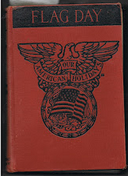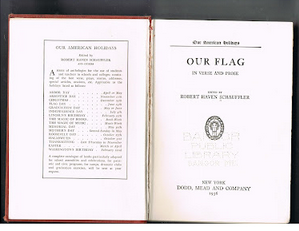I bought an American flag in September 2001 out of fear. A couple of weeks after the World Trade Center nightmare, America went from shock, confusion, anger, outrage, and inspiring patriotism to rabid nationalism. I told my then-spouse that I was ordering us a flag for the porch, because people knew we were hippie types and that people might think we were on the terrorists' side. I was sad that the Stars and Stripes had gone from a symbol of commitment to democracy and freedom to a message of support for invading Iraq. So I balanced out the American flag by also buying and hanging a UN flag with an image of the Earth on it, which was being sold as a fundraiser for a peace-advocating group.
Many years later, television showed me members of a mob using the butt end of a flagpole with Old Glory still on it to smash out the windows of a government in order to attack members of the U.S. Senate and overturn the election.
This abuse and misuse of our nation's flag makes me, more than ever, wish to reclaim the Stars and Stripes as not a symbol of rage and revolt but as a reminder of the kind of nation we are when we are at our best. Public schools, which used to stay in session till mid-June, used to have Flag Day assemblies, and I borrow an old book from the state network of libraries here in Maine, a book used by teachers and principals to organize Flag Day ceremonies. I did this mostly because I have an ongoing creative project based in 20th century history, but I also kept in mind that June 14 is Flag Day.
One of the selections in this old book is "The Man Without a Country," a long poem by Edward Everett Hale. On YouTube, there's a recording of an old record album which has actor Edward G. Robinson reading the poem.
To finish for today, here's a stirring concert version of "Stars and Stripes Forever" with some impressive piccolo action.
Next week: Returning to the "50 War Classics" box set to look at some 1940s film trailers


No comments:
Post a Comment